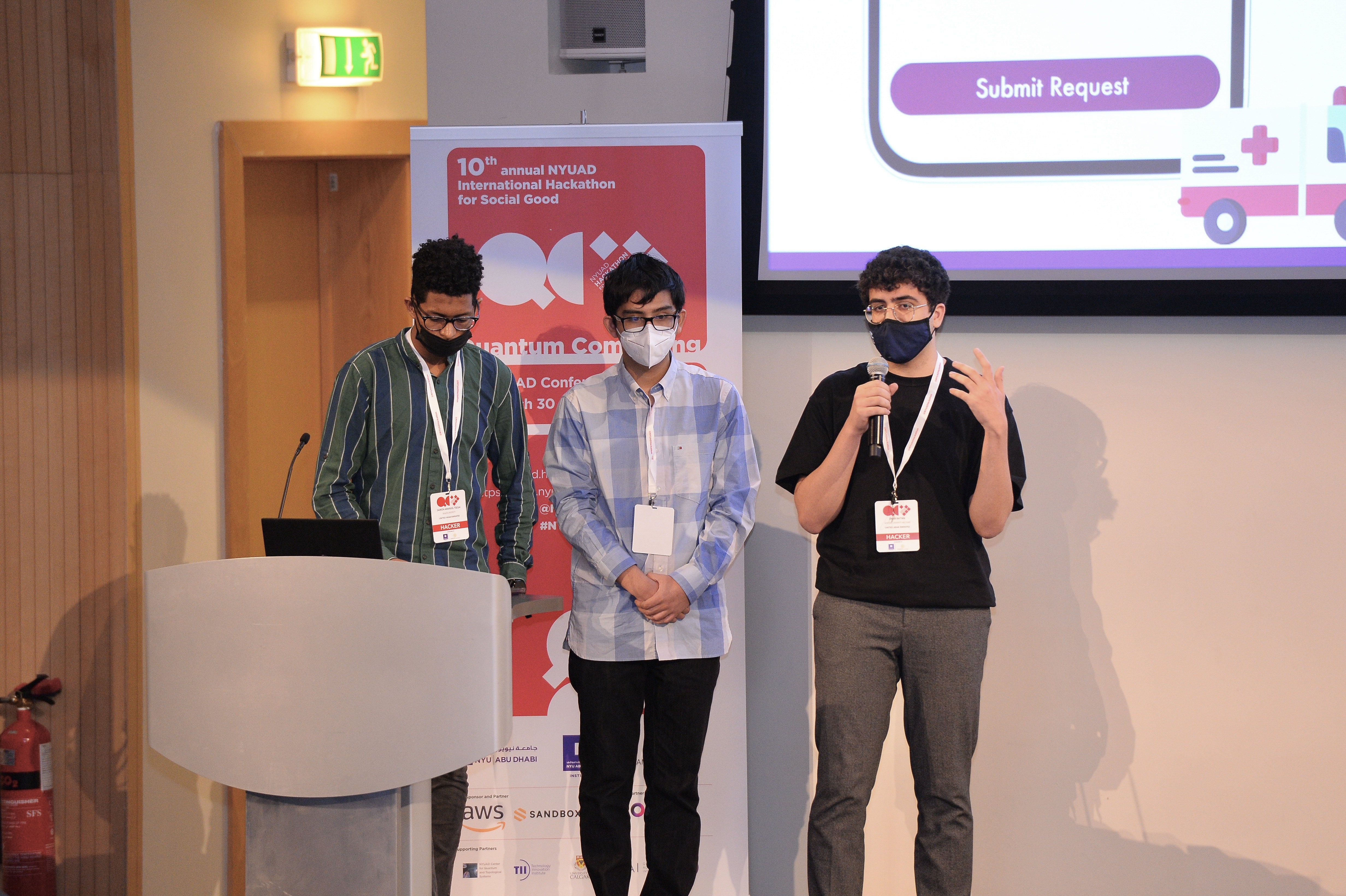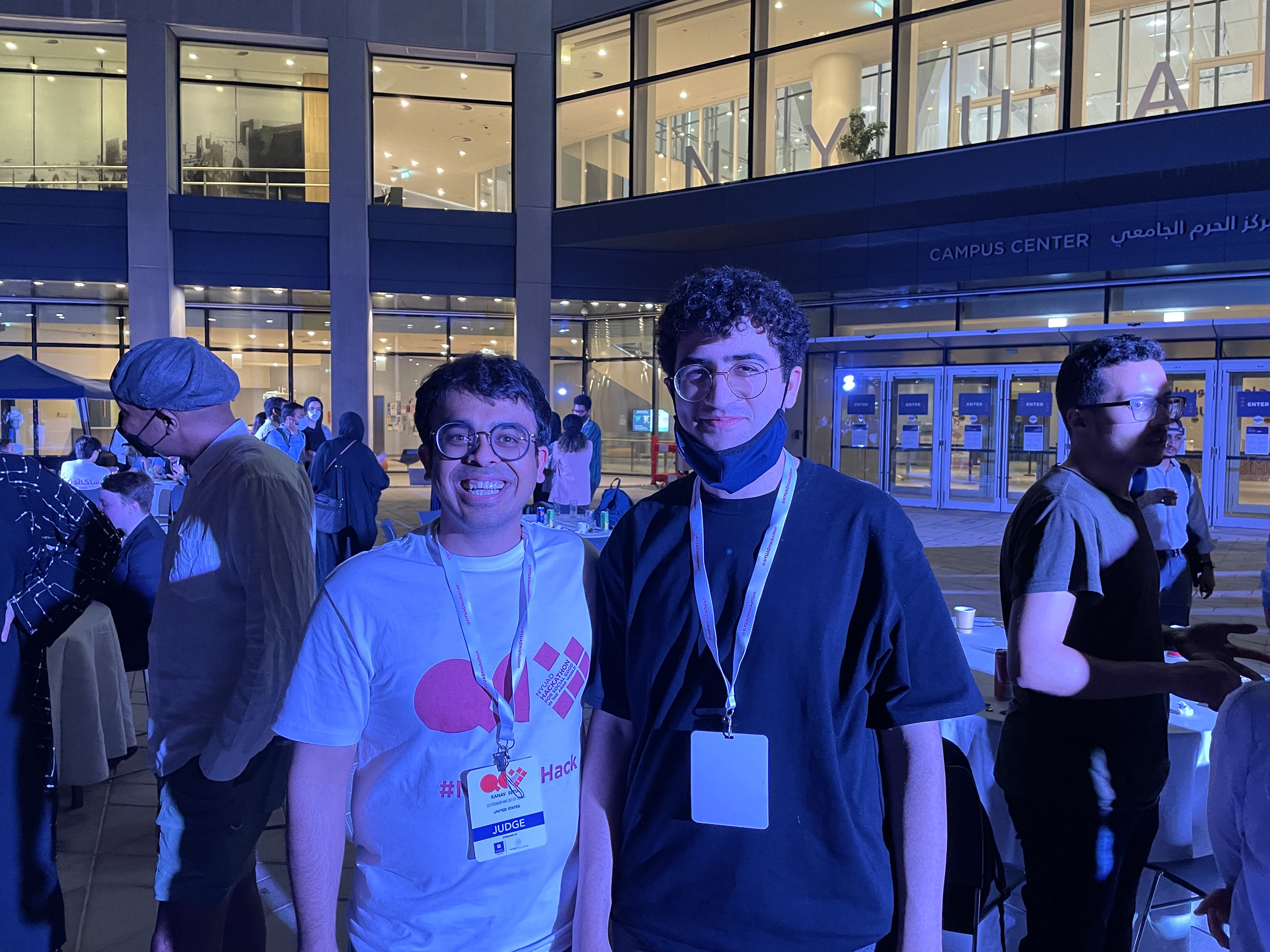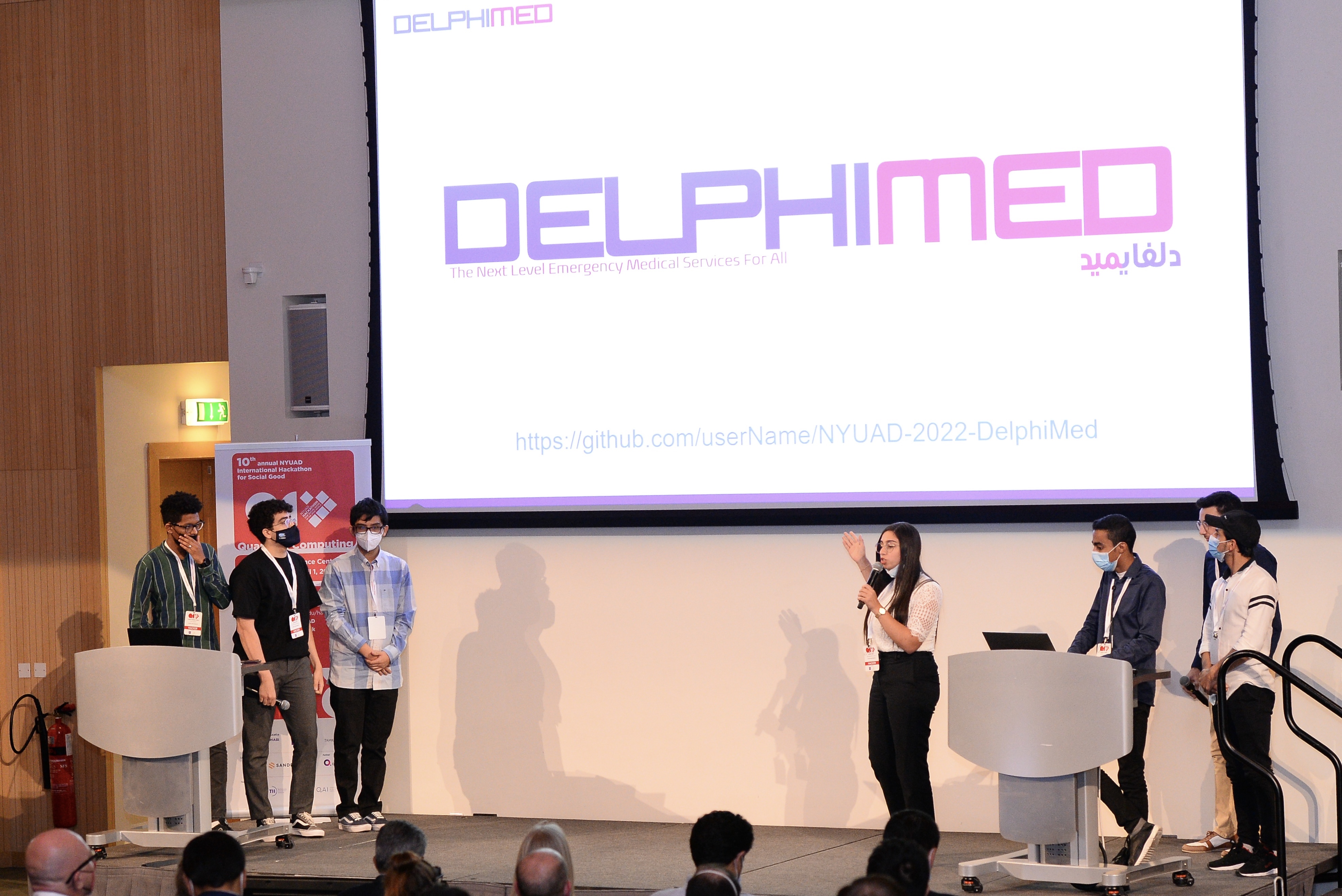NYUAD 10th Hackathon for Social Good in the Arab World: Focusing on Quantum Computing (QC)

Being my first non-remote hackathon, NYUAD 10th Hackathon for Social Good in the Arab World has set the bar high for my future ones. At first, I was intimidated by the fact that the hackathon was strictly going to focus on quantum computing, but turns out it was more enjoyable for my team and I as it forced us to think creatively. We set out to find a problem that traditional computers can't solve efficiently and have it built on the Amazon brackets that qBraid, the sponsor of this event, provided us with. Additionally, the hackathon's high diversity contributed to its engaging and learning-oriented nature, as everyone was keen to learn as much as possible from each other.
During the three-day hackathon, my team and I worked on a project titled DelphiMed, which uses a Quantum Annealing optimization algorithm to decide which hospitals to assign patients to during a pandemic. The motivation of the project was knowing that in Tokyo alone, 160,000 people were harmed during the Covid-19 pandemic because they were unable to be offloaded to an A&E in the required time. According to our team mentor Ken Tanaka who worked in a hospital in Japan during the pandemic, they were only able to receive 5 calls out of 200 made in one day because of the hospital's unavailability. Around 10,000 calls were missed by all hospitals on average in Tokyo per day. You can read more about our project here.






